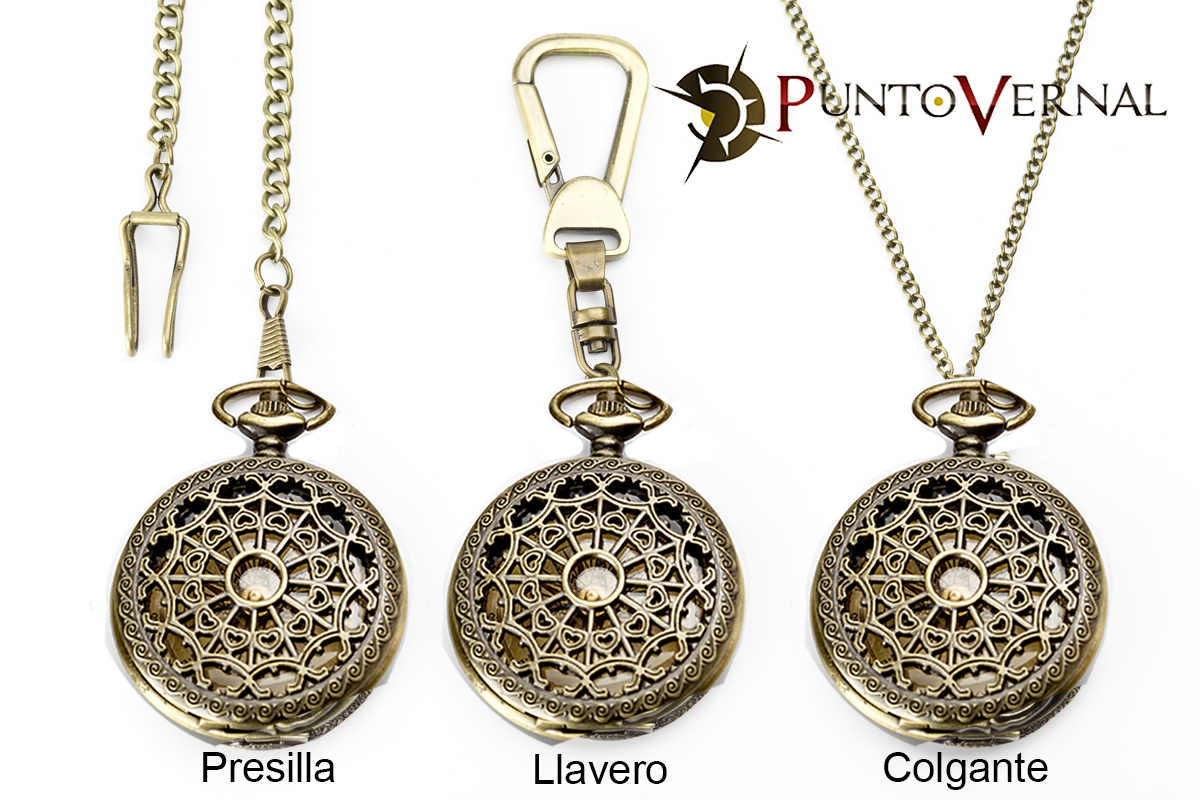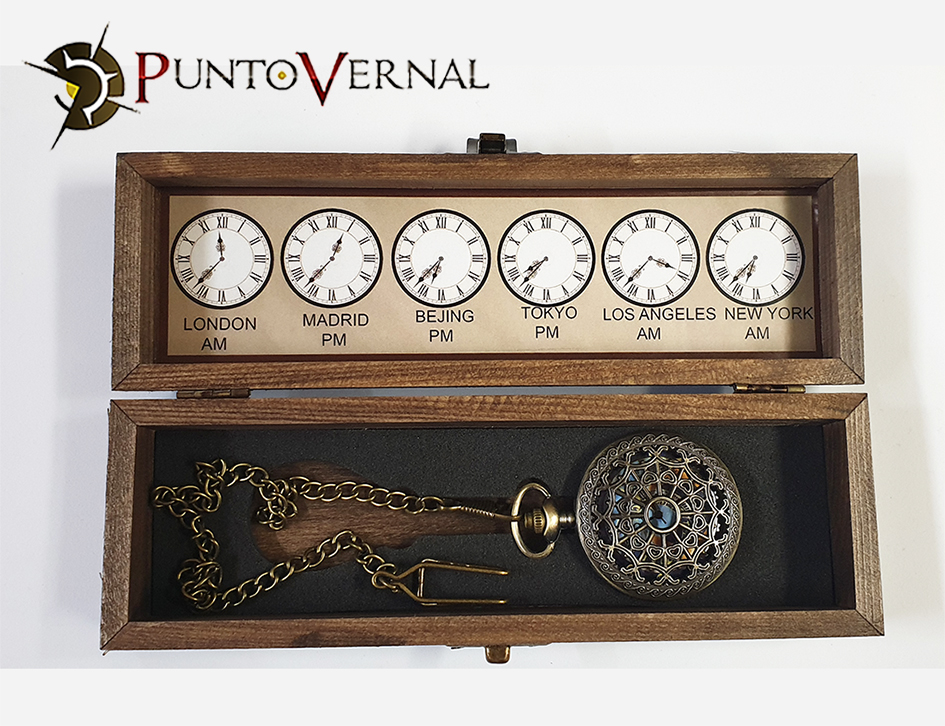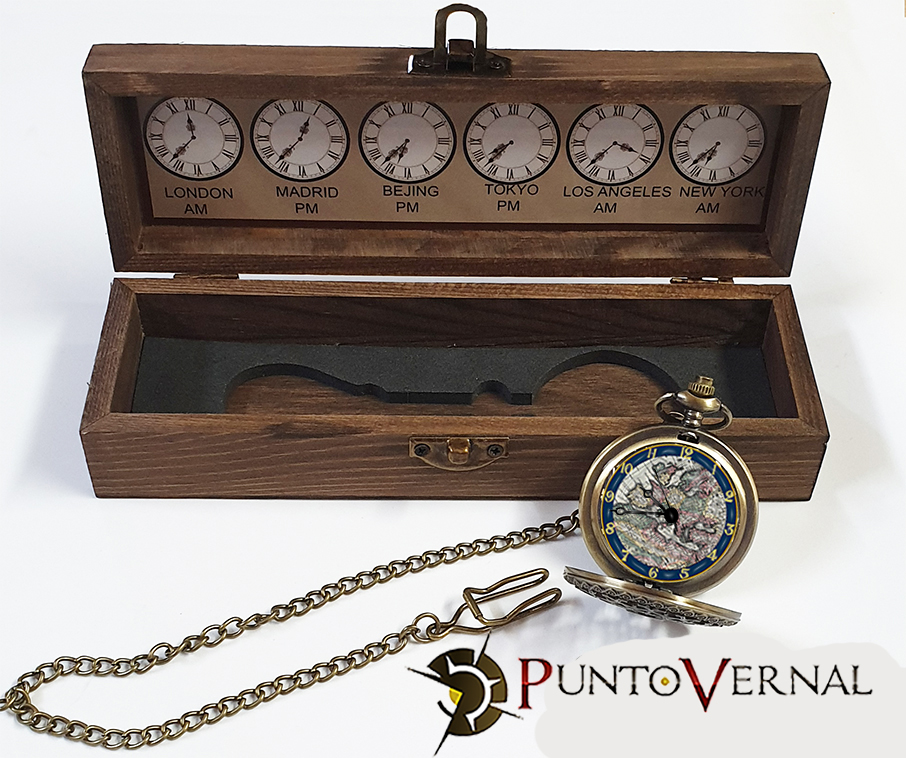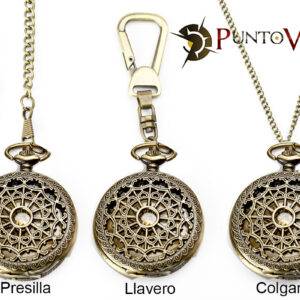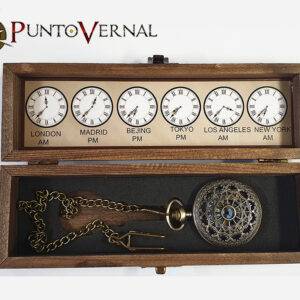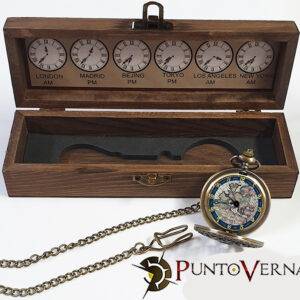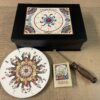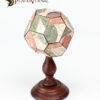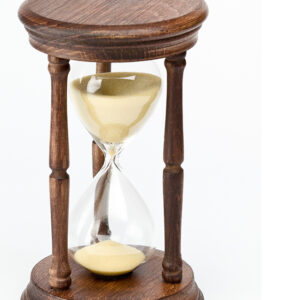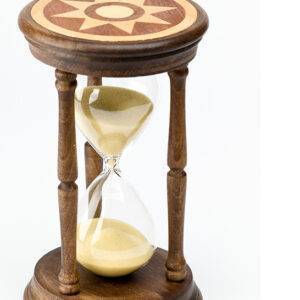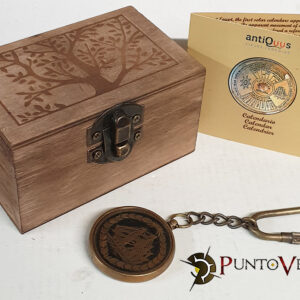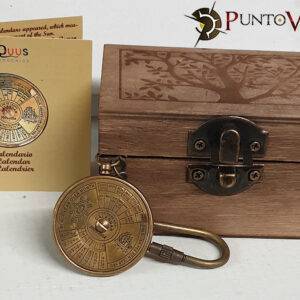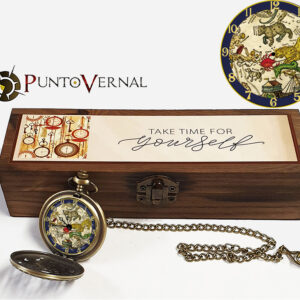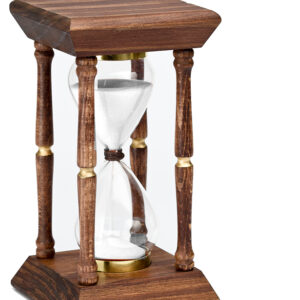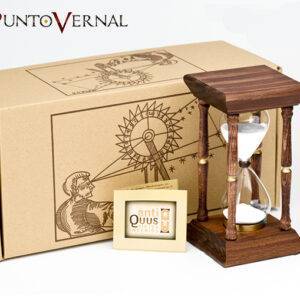POCKET WATCH
Astrolabe pocket watch made of bronze. The dial is a reproduction of the Prague astronomical clock.
The quartz watch works with a button battery that is very easy to change, since we only have to open the back cover and proceed to replace it.
HISTORY OF THE WATCH
For thousands of years, humans have measured time in a variety of ways, such as following the movements of the sun with sundials, using water clocks, and using candles and hourglasses.
Our modern system uses a 60-minute system, that is, a clock with increments of 60 minutes and 60 seconds, dating back to 2000 BC. in ancient Sumeria.
The first analog and mechanical clocks were invented in Europe in the early 14th century and were the standard device for measuring time until the invention of the pendulum clock in 1656.
INVENTION
There were many elements that came together over time to give us the modern measuring devices that we have today. Let’s look at the evolution of these components and the cultures that contributed to their development.
In 1504, Peter Henlein invented the first portable clock in Nuremberg, Germany. It wasn’t very precise.
The first person to wear a watch on his wrist was the French mathematician and philosopher Blaise Pascal (1623-1662). With a piece of rope, he tied the pocket watch to his wrist.
Watches are an invaluable aid in managing the flow of the day and keeping up with those around us… It is no wonder they are so essential.
Our astrolabe pocket watch comes in a beautiful wooden case with three formats: Keychain, pendant or loop.
By default we always send the keychain model. Please indicate your preference in comments if this is different.
VAT INCLUDED IN THE PRICE
watch measurements:
Diameter 47mm
Thickness: 15mm
https://en.wikipedia.org/wiki/Watch

